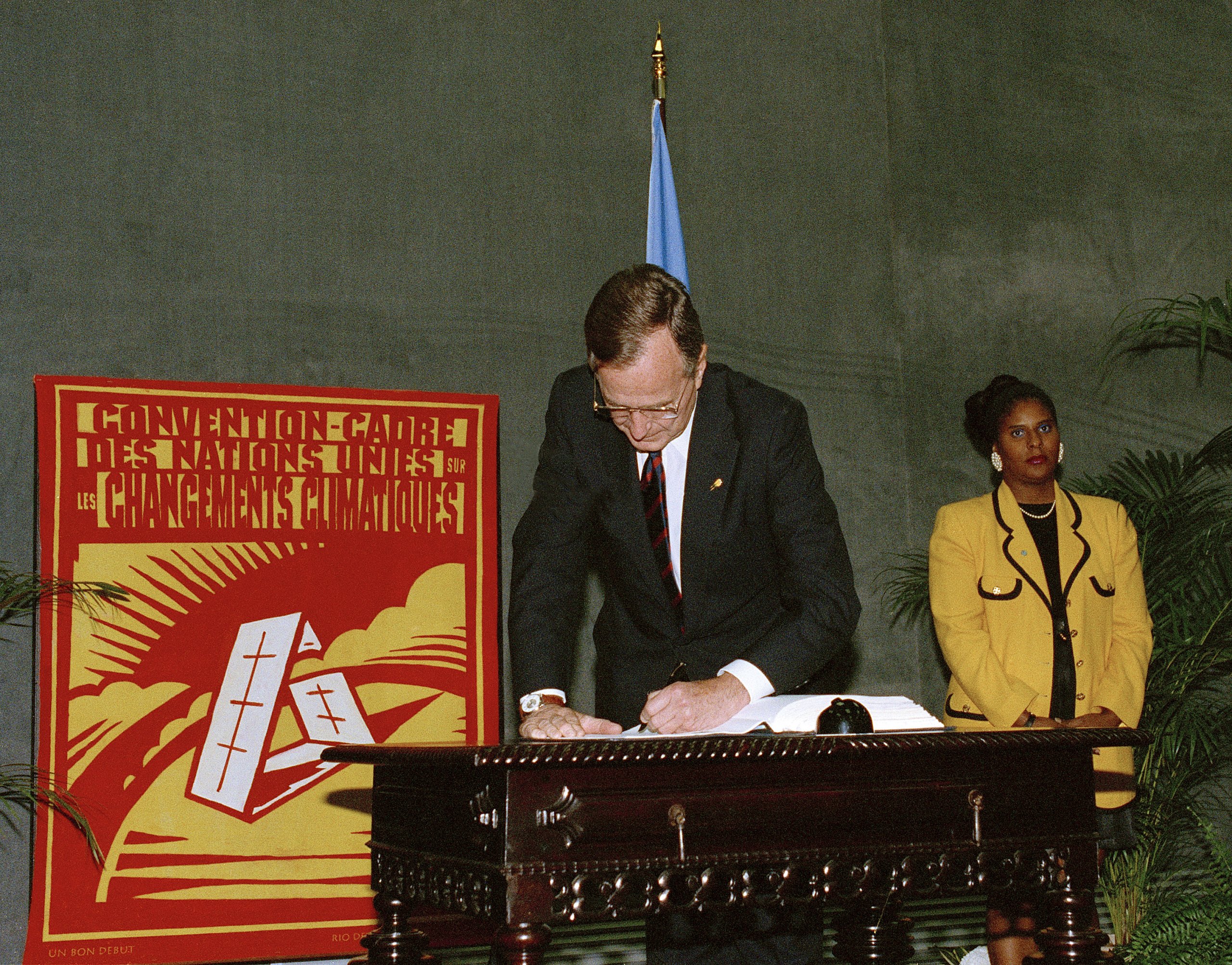Following the announcement of the United States today of its intent to withdraw from the Paris Agreement on climate change, the International Council for Science (ICSU) expresses its concern about the decision, warning that climate change is a problem that can only be tackled through international cooperation.

Paris, 1 June 2017 – The International Council for Science (ICSU) regrets the decision of the government of the United States of America to withdraw from the Paris Agreement on climate change. The International Council for Science believes that global problems can only be tackled by global cooperation.
The Council’s stance is that policy should always be informed by the best available science. The Paris Agreement is the result of an unprecedented effort to build an international agreement. Its development was informed by the thousands of scientists, including those who contributed to the research of the World Climate Research Programme, the International Geosphere-Biosphere Program (now part of Future Earth) and other global research programs sponsored by the International Council for Science and its international partners. This research was assessed globally by the Intergovernmental Panel on Climate Change (IPCC), which was awarded the Nobel Peace Prize in 2007.
The science shows that the human influence on the climate system is clearly causing unequivocal warming of the climate system. Changes in extreme weather and climate events, including heat waves and extreme precipitation events will become more intense and frequent. Global mean sea level is rising and threatens coastal communities around the globe, including the United States. Climate change is dangerous, and actions to limit its consequences are urgent. Greenhouse gas emissions threaten the stability of our Earth system, which supports life and is vital for our economies. As the world’s second biggest emitter of carbon dioxide, the United States has a responsibility to work with the rest of the world to implement the agreement.
“You can’t build a wall around climate change. No matter how hard you try to ignore it, this problem is not going away. The consequences are being felt in the USA – through extreme weather and sea-level rise and other impacts. Tackling the problem of climate change is also in the best interests of the USA,” said Gordon McBean, President of the Council.
“What were once considered extreme climate events have now become the norm. 2016 was the hottest year ever recorded. The biggest global problems such as climate change, biodiversity loss, ocean acidification, are problems that transcend the short-term lens of national politics. They can only be solved if we put aside our national interests for the greater good of humanity, now and for generations to come,” he added.
The International Council for Science (ICSU) is a non-governmental organization with a global membership of national scientific bodies (122 members, representing 142 countries) and international scientific unions (31 members). ICSU mobilizes the knowledge and resources of the international scientific community to strengthen international science for the benefit of society and through international research collaborations is the co-sponsor of the global research programs: World Climate Research Programme; Future Earth: Research for Global Sustainability; Integrated Research on Disaster Risk; Health and Wellbeing in the Changing Urban Environment; and Programme on Ecosystem Change and Society; as well as global observational and data programs and projects on ocean, Antarctic, space, astronomy and other scientific areas.
Denise Young, Head of Communications, International Council for Science (ICSU): [email protected]
+33 (0) 6 51 15 19 52
Johannes Mengel, Communications Officer and Online Editor, International Council for Science (ICSU): [email protected]
+33 (0) 6 83 65 50 08